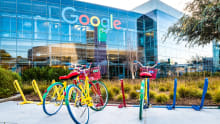Can HR be an agent of change?

People are never really ready for changes. It is very much in the culture of the organization to see how much change they are willing to adapt and adopt
Organizations, whether they are big and global or small and local, are embracing the cloud. Large organizations like British Telecom, UBS or AXA Insurance are embracing the HR cloud
In a recent tweet, you mentioned that the function of HR will die if we don’t take the lead on digital and social. What prompted you to tweet that and what is your view on the HR community?
Technology has changed the way we deal with our personal lives. From Facebook to Whatsapp to Reachout in China, we manage our personal lives in a very digital world and that means there is a shift in demand from the GenY or the millennial workforce. From my perspective, the workforce is starting to demand the kind of engagement and tools at work that they have in their personal lives. What that means from the HR perspective is that HR will be seen as the agent of change and expected to leverage the technology according to the needs of the organization. Whether HR likes it or not, that is what the modern workforce is really demanding from the employers.
Since HR is a traditional function that focuses on maintenance, protection and compliance, it is not prone to change and agility compared to other functions in the organizations. Do you see HR resisting the change and if so what is your advice on how can HR transform itself?
There’s no way by industry or geography that people are ready for such changes. It is very much in the culture of the organization to see how much change they are willing to adapt and adopt. That said, the cultural fabric of the organization is changing to adapt the modern times in modern HR. Ten years ago, HR departments were hesitant to give you internet access, which you could only access through intranet. Fifteen years ago, HR departments were hesitant to give you email addresses. What happened over time was that employers who gave tools to employees to do business in a modern world succeeded; they are more profitable, have lower turnover and attract higher caliber of workers who want to work in a company that allows them to succeed in their jobs. That is the balance I think HR departments would want to develop, as ultimately they are the ones who are responsible for helping workers achieve their goals.
Do these transformations benefit HR tremendously? What is in it for me as an HR professional to embrace this change?
HR professionals do everything in the organization from psychiatrist, financial counselling, coaches etc. Technology lets HR stop having to worry about administrative tasks and lets them focus on the value-add tasks like career organizational plan in workforce development, career plans and paths, charting out strategic initiatives key to growth that are mapped in line with strategic policies from the CEOs. What’s in it for me is that it really lets you do the job that you are good at and support things you are really good at.
How has the advent of cloud computing simplified HR functions?
HR technology is a very strategic initiative and hence like all investments it would appreciate over time. The downside of the capital investment in HR technology is that it’s really expensive to maintain. It requires an awful lot of expertise, money and resources to upgrade. Cloud Computing allows an organization to eliminate the need to have technology-dependency or IT budgets and allows HR to identify the strategic initiatives and deploy technology in a matter of weeks not months or years. This way HR can make a business case for not just technology investment but a business case for change program for the organization and the HR services. The return on investment is attractive and you get to realize it & deliver it on that. Earlier, you needed to wait 12, 18 or 24 months for a software upgrade.
What are the challenges HR encounters while migrating to cloud?
Global organizations are embracing the cloud very rapidly. I think they understand the highly complex nature of the business and that a capital implementation of technology will cost significantly more. Large organizations like British Telecom, UBS or AXA Insurance are embracing the HR cloud while JPMorgan Chase is embracing talent management in the Cloud. Organizations, whether they are big and global or small and local, are embracing the Cloud. Where they are struggling is with cloud vendors on the market who provide limited functionality. Another barrier is that there are some applications that don’t really allow to configure and tailor the software to your business processes. In other cases, there are vendors that don’t have a complete suite of HR processes. If you give your cloud solutions to the vendor, then you really have a very expensive mess on your hands on data migration. On the other hand, if you work with a vendor who ensures that the best practices will be interwoven into the applications, then you will run the business in the same way that everyone else does.
What do you do to drive innovation in HR products? How is that sustained over the longer term?
Oracle believes in the customer community. We innovate our products based on working very closely with the community of people who do all kinds of HR functions. You also have to ensure that you have many smart people who can translate the community needs into products. Their job is to help identify the common needs and translate it in the industry be it a specific or geographic or emerging trend. We want to provide them a platform for companies to adopt and deliver it to the market. We really try to maximize the values that Oracle community and the HR community bring together in the areas of social, mobile and Big Data as organizations allow HR to leverage these technologies today.
What according to you are the emerging trends in HR technology?
Social and mobile are two things that HR should adopt. The third thing is Data, Business Intelligence and Big Data, which is going to change the way HR does business in the future. For many years, HR didn’t necessarily have all the information and in many cases it wasn’t available. The next wave of HR is decision-making based on Big Data and being able to question the data. The upcoming trend involves the idea of introducing data finders into the business of HR and HR professionals becoming data experts. They need to be able to rely on the data that comes from the system to help you find. For example, the question of where to hire the best people from? When you start using data, you will look at that question differently than you are looking at it now like where does 50 per cent of your best hires come from. Those are the questions that HR has or doesn’t have the capability to answer and the real trend would be for HR to be able to answer those questions.
What are those capabilities that HR will have to build?
HR needs to be intimately familiar with social and mobile technologies. HR will have to understand the mobility tools in such a way that it works in the social perspective and hence they will have to build the capability to understand how to attract that talent and how to train that talent. Another area where HR will have to build capability is analysis.
Aaron Green is the Vice President-HCM Strategy at Oracle. He researches and identifies emerging trends in the practice of HR and works to deliver industry-leading technology solutions. Green speaks extensively around the world with an emphasis on shifting workforce demographics. Prior to joining Oracle in 2004, he held a variety of leadership positions in Human Resources at Sun Microsystems, Logitech and Lexmark International. He previously held posts in Asia and Western Europe.










